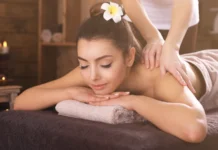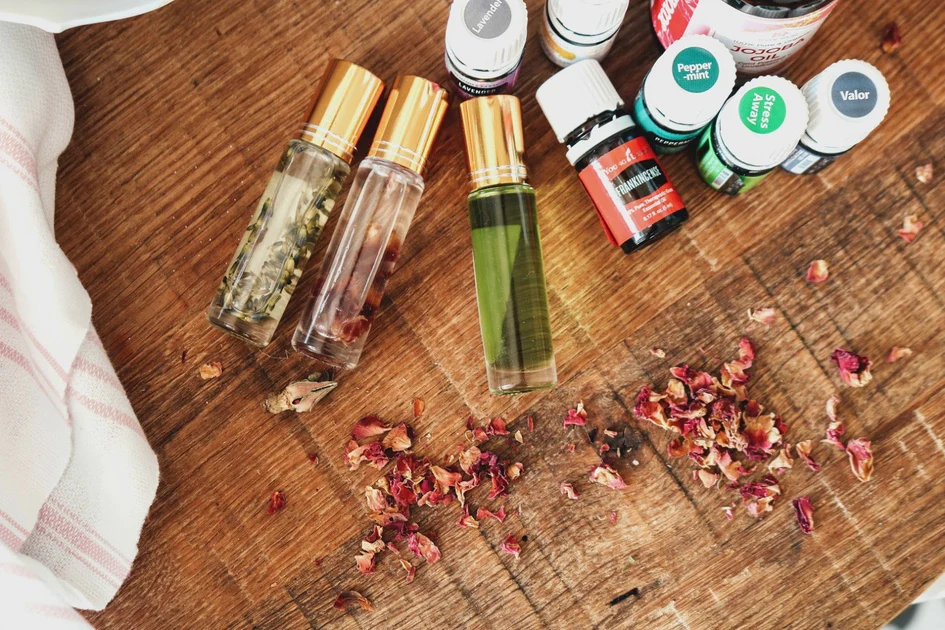
The most effective pathway to our mood, memories, emotions, and even health among the five senses of humans is smell, which explains the effectiveness of aromatherapy. Although it may appear like you are only smelling something, there is always a clear connection between your mood and health. Essential oils are more than just aromas; their usage is widespread in enhancing mental and emotional wellness. It is an additional form of therapy. It cannot treat infections, rashes, or diseases but can supplement conventional care for several problems.
Aromatherapy profoundly impacts your emotional well-being through the external and aromatic application of essential oils. On topical application, fragrance oils affect all the cells in your body by entering through the skin. The practice of aromatherapy is scientific and, at the same time, gives you a sense of luxury. It has become more well-known in the world of medicine and alternative therapies.
How Do Essential Oils Work?
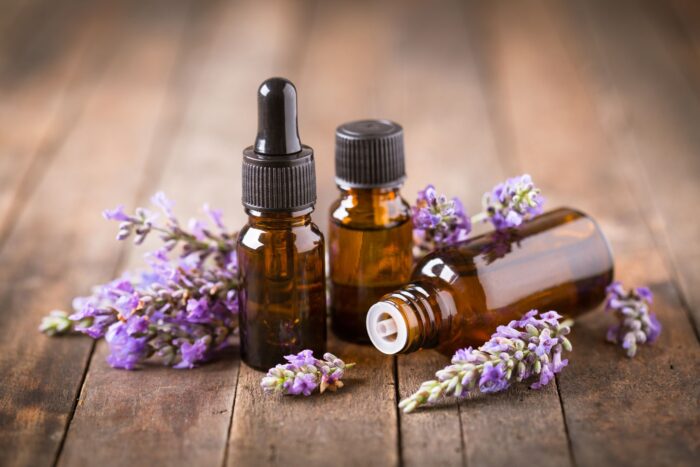
Essential oils are fragrant substances safely purified and taken from plants for their therapeutic properties. Since they comprise countless distinct compounds, they have many intricate and adaptable functions that can neutralize problems without creating resistance. They treat any issue by raising the vibrations of the entire body on a cellular level.
These oils do not contain harmful preservatives or components, so the skin absorbs them quickly. The use of essential oil has been widespread through generations for emotional benefits. Ensure you use good-quality essential oil that does not include pesticides, chemicals, weeds, or other artificial components to absorb maximum benefits from your aromatherapy session.
Every essential oil offers a unique chemical composition and function. So, speaking with a qualified aromatherapist is crucial before utilizing aromatherapy oil for therapeutic practices. Individuals have different memories and triggers, and thus their preferences will also be unique. For instance, the smell of lavender oil has soothing and relaxing properties that can appeal to one and repellent to another.
Essential Oils For Emotional Well-Being

You may have seen how fragrances and feelings are closely associated with your everyday life. Specific smells occasionally cause memories and emotions to surface, affecting your emotions and moods. It is because your nostrils provide a direct route for communication between the brain’s limbic system, which houses the amygdala, and the body’s emotions.
The olfactory system is a part of the brain that connects with the smell. When you inhale essential oils, it activates this system. When a molecule enters the nose or mouth, it travels to the lungs and other body parts. When molecules enter the brain, they impact the limbic system, which links to hormone balance, memory, stress, respiration, heart rate, emotions, and other bodily functions like breathing and blood pressure. The intentional application of essential oils can drastically alter your outlook and stop stress or destructive emotions, which are the primary root of illnesses.
In this approach, aromatherapy oils can subtly but comprehensively impact your body. It is beneficial in relaxing the nervous system, easing anxiety, or improving mood by breathing the fragrant molecules of aromatic oil. You can do this by taking a drop of oil in your palm and covering your nose, putting oils in a diffuser, or directly applying the oil on your skin.
How To Manage Emotions With Essential Oils
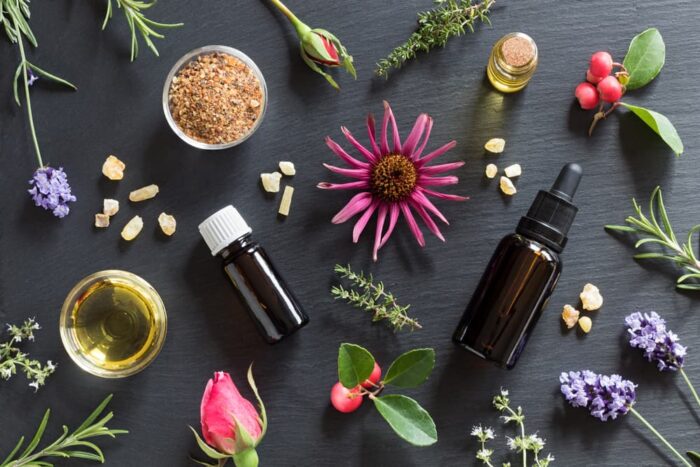
You can divide essential oils into stimulating and relaxing groups for aromatherapy purposes. Given their chemical composition, relaxing oils primarily consist of flower, tree, herb, and grass scents. Essential oils with uplifting, energizing, and stimulating fragrances are typically from the plants in the citrus, spice, or mint families. To maintain emotional health at home, at work, or when traveling, try these fundamental oils:
⦁ Basil essential oil improves focus and lessens some indicators of depression. It might help with migraines and headaches.
⦁ Lavender is calming; it lowers anxiety, soothes strong emotions, and reduces tension. The lavender scent calms you without making your thoughts feel fuzzy or cloudy.
⦁ Bergamot is uplifting, calming, and harmonizing; it helps to reduce stress and anxiety by fostering a calm environment.
⦁ Peppermint stimulates and activates the senses and the brain to improve focus and study; it instantly relieves mental weariness and gives you more energy.
⦁ Thyme can help with restlessness and exhaustion and reduce stress.
⦁ Rosemary is shown to improve productivity and mood, and it connects to the emotions of happiness. It may lower cortisol levels, which helps ease stress and anxiety.
Ways To Use Essential Oils
When you use essential oil aromatically, you can enjoy their fragrance and gain advantages like clean air and emotional harmony. To use oils aromatically, try these simple methods:
⦁ Make use of an essential oil diffuser.
⦁ Another way is to take a drop in your palms and rub it gently. Then cover your nose and mouth with your palms and breathe gently. One drop is enough because the oils are potent. Be cautious while using peppermint oil because it can irritate the eyes and is strong-smelling, so keep it away from the eyes.
⦁ Mix it with lotion or carrier oil before applying it to the body.
⦁ The skin absorbs massage oils, bath salts, and skin care products. After applying a few drops, massage well for proper circulation and absorption.
⦁ Remember never to use aromatherapy oils directly on the skin. It is crucial to dilute them by mixing them with carrier oil. Coconut oil, sweet almond oil, and olive oil are common carriers.
Takeaway
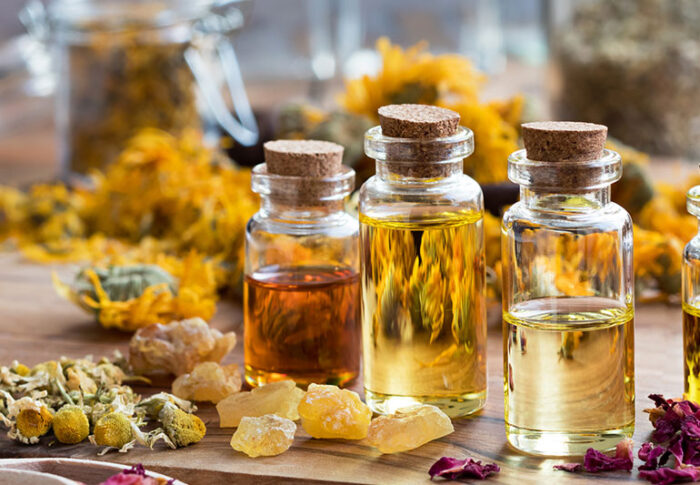
The use of most aromatherapy oils is safe. However, you must take some safety measures when opting for them. Also, be aware of any adverse effects. Consult your doctor before opting for aromatherapy, mainly if you consume medicines. You should keep them away from children, whereas pregnant and breastfeeding women must consult the doctor before using essential oils.
Consider how various essential oils and application techniques will benefit you while researching their uses. It’s important to remember that aromatherapy is only a complementary therapy. The intention is not to replace medical treatment. Every essential oil has various unique healing qualities, applications, and outcomes.

